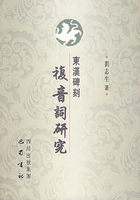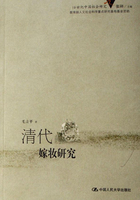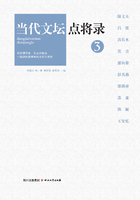Seeing People off
麦克斯·毕尔勃姆 / Max Beerbohm
I am not good at it. To do it well seems to me one of the most diff?icult things in the world, and probably seems so to you, too.
To see a friend off from Waterloo to Vauxhall were easy enough. But we are never called on to perform that small feat. It is only when a friend is going on a longish journey, and will be absent for a languish time, that we turn up at the railway station. The dearer the friend and the longer the journey, and the longer the likely absence, the earlier do we turn up, and the more lamentably do we fail. Our failure is in exact ratio to the seriousness of the occasion, and to the depth of our feeling.
In a room, or even on a doorstep, we can make the farewell quite worthily. We can express in our faces the genuine sorrow we feel. Nor do words fail us. There is no awkwardness, no restraint, on either side. The thread of our intimacy has not been snapped. The leave-taking is an ideal one. Why not, then, leave the leave-taking at that? Always, departing friends implore us not to bother to come to the railway station next morning. Always, we are deaf to these entreaties, knowing them to be not quite sincere. The departing friends would think it very odd of us if we took them at their word. Besides, they really do want to see us again. And that wish is heartily reciprocated. We duly turn up. And then, oh then, what a gulf yawns! We stretch our arms vainly across it. We have utterly lost touch. We have nothing at all to say. We gaze at each other as dumb animals gaze at human beings. We “make conversation”—and such conversation! We know that these friends are the friends from whom we parted overnight. They know that we have not altered. Yet, on the surface, everything is different; and the tension is such that we only long for the guard to blow his whistle and put an end to the farce.
On a cold grey morning of last week I duly turned up at Euston, to see off an old friend who was starting for America.
Overnight, we had given him a farewell dinner, in which sadness was well mingled with festivity. Years probably would elapse before his return. Some of us might never see him again. Not ignoring the shadow of the future, we gaily celebrated the past. We were as thankful to have known our guest as we were grieved to lose him; and both these emotions were made manifest. It was a perfect farewell.
And now, here we were, stiff and self-conscious on the platform; and framed in the window of the railway-carriage was the face of our friend; but it was as the face of a stranger—a stranger anxious to please, an appealing stranger, an awkward stranger. “Have you got everything?” asked one of us, breaking a silence. “Yes, everything,” aid our friend, with a pleasant nod. “Everything,” he repeated, with the emphasis of an empty brain. “You’ll be able to lunch on the train,” said I, though the prophecy had already been made more than once. “Oh, yes,” he said with conviction. He added that the train went straight through to Liverpool. This fact seemed to strike us as rather odd. We exchanged glances. “Doesn’t it stop at Crewe?” asked one of us. “No,” said our friend, brief?ly. He seemed almost disagreeable. There was a long pause. One of us, with a nod and a forced smile at the traveler, said “Well!” The nod, the smile and the unmeaning monosyllable, were returned conscientiously. Another pause was broken by one of us with a f?it of coughing. It was an obviously assumed f?it, but it served to pass the time. The bustle of the platform was unabated. There was no sign of the train’s departure. Release—ours, and our friend’s—was not yet.
My wandering eye alighted on a rather portly middle-aged man who was talking earnestly from the platform to a young lady at the next window but one to ours. His f?ine prof?ile was vaguely familiar to me. The young lady was evidently American, and he was evidently English; otherwise I should have guessed from his impressive air that he was her father. I wished I could hear what he was saying. I was sure he was giving the very best advice; and the strong tenderness of his gaze was really beautiful. He seemed magnetic, as he poured out his f?inal injunctions. I could feel something of his magnetism even where I stood. And the magnetism, like the prof?ile, was vaguely familiar to me. Where had I experienced it?
In a f?lash I remembered. The man was Hubert Le Ros. But how changed since last I saw him! That was seven or eight years ago, in the Strand. He was then (as usual) out of an engagement, and borrowed half-a-crown. It seemed a privilege to lend anything to him. He was always magnetic. And why his magnetism had never made him successful on the London stage was always a mystery to me. He was an excellent actor, and a man of sober habit. But, like many others of his kind, Hubert Le Ros (I do not, of course, give the actual name by which he was known) drifted speedily away into the provinces; and I, like every one else, ceased to remember him.














